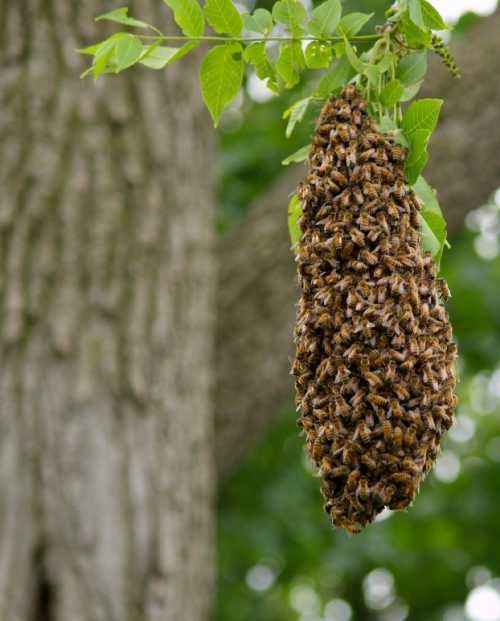Help Me Get Rid Of Bees!
If you want to get rid of bees, best ask some-one who knows a lot about bees!
One of the things they’ll be able to tell you, is whether you
really do need to take action. There are different types of bees, and this needs to be taken into account, as well as the individual scenario.
But PLEASE read the following notes first, and certainly before you call in pest control.
Bees are going through a hard time - yet we need them.
But you can still be humane and possibly save money.
In addition, please note that I now have lots of advice for all kinds of situations - from bees in the attic to bees in the compost heap - please see this link: HELP WITH BEES.
Very often, it is not necessary to remove bees at all.
For
example, many nests only last a short while, swarms will often move on
by themselves, or beekeepers may help you, and most bees represent little or practically no threat
in terms of stings, unless you provoke them.
Also, let's not
over-hype the threat of having bees nearby. More often than not, they
are a blessing, and we simply need to change our attitudes towards them. At the end of the day, bees fly around in gardens and public spaces without bothering us - and a nest might not be such a problem.
If you are simply afraid of the bees, perhaps you could use a repellent, and keep your distance? Deet free repellents are available for a variety of scenarios: use on the skin, use outdoors and so on.
That said, there are times when it cannot be
helped, and for very difficult and valid reasons, we need to take
action. Before I link you to the
specific information you need, first, a few points:
Bee humane!
If you need
to remove honey bees, call a beekeeper to assist you. If appropriate,
they may be able to use a smoker to calm the bees, then move them safely
to a place that is more appropriate for them. They’ll also ensure no
honeycomb is left behind – otherwise, this could attract more bees, or
even wasps, once the original honey bees have moved on. There’s more
information about this in the link below.
Bumble bee nests are temporary, but if you need to move a nest, the same applies: follow the guidance provided on the link, as it’s very comprehensive.
Bee safe!
Keep your distance from
the bees if you are calling in assistance, and keep pets and children
away. Bees are rarely aggressive unless provoked.
Should you call pest control?
Of course, you may read a
dozen or so web sites written by pest control companies who will get rid of the bees for you - and this may
involve destroying the bees.
Other companies will refuse to kill bees
and will attempt to save them, perhaps by relocating the nest. Some may even advise you to leave them alone. If you decide to seek
assistance from such a company, you'll still have to pay them,
whether they save the bees or harm them.
In any event, take no notice of exaggerated dangers. Take a little time to get better informed and save yourself unnecessary hassle, and cost.
Honey Bee Swarm Removal
Sometimes swarms will move on of their own accord, but if they look like they intend to stay put, seek the assistance of a beekeeper. This page specifically deals with honey bee swarms (other types of bees do not swarm).
However, do first take the time to take a quick look at this general, useful information about
swarming bees.
 Honey bee swarm suspended from a tree branch.
Honey bee swarm suspended from a tree branch.
Bumble Bee Nest Removal
If it is absolutely necessary to move a bumble bee nest, you'll find detailed advice here.
Bee Nests Q&A
Visit this this general Q&A, that will help you identify the type of nest you have, or whether it's a swarm. This will help you decide what to do next.
Carpenter Bees
Here you'll find information about how to deal with carpenter bees, but better still, how to help prevent future carpenter bee nests.
If you found this page helpful or interesting, I'd really be grateful if you would share it with others - if not this page, perhaps another, such as Gardening For Bees.
Thank you so much :) .